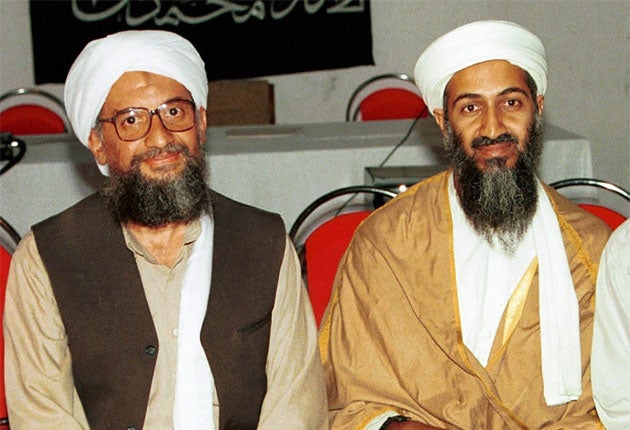How CIA was fatally duped by Jordanian double agent
Doctor-turned-bomber who was recruited by Americans to hunt down Bin Laden's right-hand man was in fact working for al-Qa'ida

The Central Intelligence Agency was bracing yesterday for a fresh barrage of questions about its competence following reports that the man who blew himself up at its main operating base in Afghanistan on 30 December, killing seven of its employees, had been recruited by the US but had, in fact, been a double agent for al-Qa'ida all along.
It was the deadliest attack suffered by the CIA against its own for more than 25 years. The suicide bomber, at first thought to have been a disgruntled Afghan soldier, has now been identified as Humam Khalil Abu Mulal al-Balawi, a 32-year-old doctor from Jordan.
Also killed by the blast at the CIA's Forward Operation Base Chapman in eastern Afghanistan, was his Jordanian handler, Ali bin Zaid, a senior intelligence officer of Jordan and a cousin of King Abdullah. The CIA has not identified the victims from its ranks, some of whom were agents while others may have been contractors.
Nor was the CIA making any on-the-record comment about the attack, details of which were still surfacing last night. But one top US intelligence official told The Washington Post anonymously that it would not go unanswered. "The agency is determined to continue pursuing aggressive counter-terrorism operations," the official said. "Last week's attack will be avenged. Some very bad people will eventually have a very bad day."
Family members yesterday said that al-Balawi had been working as a doctor in a Palestinian refugee camp in Jordan near Zarqa, which happens also to be the hometown of Abu Musab al-Zarqawi, the al-Qa'ida leader who was killed in Iraq in 2006. They said he had told friends months ago that he was going away to study in Turkey.
But family and friends, it seems, were not the only people that al-Balawi duped. First arrested over a year ago by Jordan as a suspected al-Qa'ida sympathiser and operative, al-Balawi subsequently convinced the Jordanian intelligence agency that he was ready to switch sides and infiltrate the terror group. In time, the Americans were apparently also convinced that he had been successfully turned.
To cement the deception, al-Balawi reportedly supplied the Jordanians and the CIA with what officials have called "actionable intelligence" on al-Qa'ida on more than one occasion.
That he continued to pen pro-jihad messages on websites associated with al-Qa'ida, and to speak publicly of his support for armed jihad, seemingly did not give Western agents pause, perhaps because they assumed he was doing so to build up his own cover as a double agent. Al-Balawi's specific mission was to help the Americans track down down al-Qa'ida's number two, Ayman al-Zawahiri. Minimal precautions were apparently taken when al-Balawi, accompanied by Jordan's Bin Zaid, travelled to the CIA facility in Khost province last week, apparently after indicating that he had important information to share.
It was as he approached one of the main buildings at the complex that al-Balawi detonated a powerful bomb concealed in his vest. Among the immediate concerns being raised are why he had not been thoroughly searched on entering the compound, and why there were so many CIA people with him at the moment he set off the explosives he carried. American intelligence officials are working to identify the masterminds of the attack.
According to at least one report, US military officials believe it may have been orchestrated by the Haqqani network, an al-Qa'ida-linked militant group that operates out of north-west Pakistan and has launched many attacks in Khost in the past. Ironically, the network's ageing leader, Jalaluddin Haqqani, was formerly a close US ally in the covert Afghan war against the Soviets. He visited the Reagan White House and was described by Texas politician Charlie Wilson as "goodness personified".
Meanwhile, the bombing has highlighted both the shortcomings of both Jordanian and US intelligence operations, and the increasing sophistication and reach of their enemies.
"Double-agent operations are really complex. The fact that they can pull this off shows that they [al-Qa'ida] are not really on the run," one former CIA official commented. "They have the ability to kick back and to think about these things."
The evidence that al-Balawi may have been fatally mishandled comes even as a top American military intelligence officer in Afghanistan, Major-General Michael Flynn, suggested in an article published by a Washington think-tank that the US intelligence community is only "marginally relevant" to the West's efforts to confront the Taliban and al-Qa'ida in Afghanistan.
The debacle may also add strains to the relationship between the US and Jordanian intelligence agencies, which have hitherto been very close.
Bin Zaid, whose body was met by the king when it was returned to Jordan, seems to have been the first to be convinced that al-Balawi had genuinely changed sides.
Yet al-Balawi's jihadist writings had the ring of conviction. He reportedly told one magazine he had had a "predisposition for love of jihad and martyrdom ever since I was little."
Join our commenting forum
Join thought-provoking conversations, follow other Independent readers and see their replies
Comments